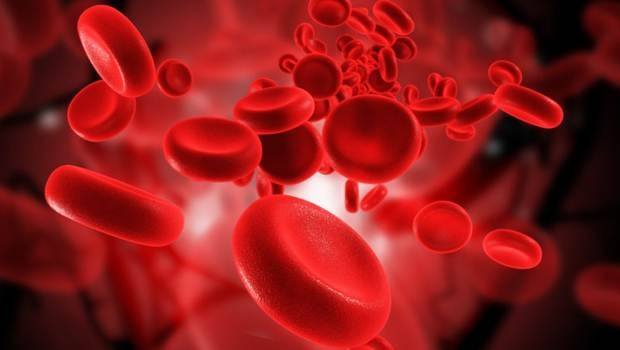 The red blood cells contain a protein called hemoglobin, also known as Hb or Hgb. This molecule carries oxygen from the lungs to the different parts of the body. A normal hemoglobin level is at 13.8 to 17.2gm/dL of blood for males and 12.1 to 15.1gm/dL of blood for females. Normal limits for children vary with their sex and age.
The red blood cells contain a protein called hemoglobin, also known as Hb or Hgb. This molecule carries oxygen from the lungs to the different parts of the body. A normal hemoglobin level is at 13.8 to 17.2gm/dL of blood for males and 12.1 to 15.1gm/dL of blood for females. Normal limits for children vary with their sex and age.
A low hemoglobin count is commonly seen in routine blood tests. For males, it is below 13.5gm/dL, and for females, it is below 12gm/dl. Usually, blood test results reveal just a slight decrease from normal levels, which may not be clinically significant and does not lead to symptoms. However, if the decline in hemoglobin level is considerable and leads to symptoms, there may be an underlying medical condition causing it. This abnormally low hemoglobin count is known as anemia.
Causes of Low Hemoglobin Count
A slight decrease in hemoglobin does not necessarily indicate an illness. Some people adapt to slightly low hemoglobin count, like woman who are menstruating or pregnant.
A significantly low hemoglobin count may be associated with disease or any condition that causes the blood to have very few red blood cells (RBC). This occurs if the body manufactures a smaller number of RBC than normal, if these blood cells are destroyed more rapidly than they are created, or if one experiences blood loss.
Certain conditions and diseases cause the body to manufacture fewer RBC than normal, and these include:
- Vitamin deficiency
- Iron deficiency
- Aplastic anemia
- Multiple myeloma
- Leukemia
- Myelodysplastic syndromes
- Cancer
- Cirrhosis
- Kidney disease
- Hodgkin's lymphoma (Hodgkin's disease)
- Hypothyroidism (underactive thyroid)
- Non-Hodgkin lymphoma
- Lead poisoning
- Medications like anti-retroviral drugs and chemotherapy drugs
When the body destroys RBC faster than it produces them, low hemoglobin count occurs, such as in these conditions:
- Enlarged spleen
- Sickle cell anemia
- Porphyria
- Vasculitis
- Thalassemia
Acute or chronic blood loss also results in low hemoglobin count, and this can occur because of any of these:
- Trauma or surgery
- Internal bleeding or hemorrhage
- Frequent blood donations
- Heavy menstrual bleeding
- Frequent nosebleeds
Symptoms of Low Hemoglobin Count
A person who has a slightly low hemoglobin level may not feel any symptoms at all. Some may  experience mild symptoms of dizziness, but those who are moderately anemic may also feel chronically tired, and may experience frequent headaches, lack of concentration, or fatigue. A very low hemoglobin count reduces the body's ability to carry oxygen to the vital organs. This may lead to shortness of breath and an increase in pulse rate, which are the ways by which the body compensates to increase the output of the heart. These may also lead to palpitations and chest pains.
experience mild symptoms of dizziness, but those who are moderately anemic may also feel chronically tired, and may experience frequent headaches, lack of concentration, or fatigue. A very low hemoglobin count reduces the body's ability to carry oxygen to the vital organs. This may lead to shortness of breath and an increase in pulse rate, which are the ways by which the body compensates to increase the output of the heart. These may also lead to palpitations and chest pains.
Visible signs of low hemoglobin count include paleness of the skin, gums, and nail beds. In serious cases, the arms and legs may become swollen, and the individual may experience excessive sweating, heartburn, vomiting, bruises, and bloody stools. Poor brain development occurs in children, which may manifest as behavioral disturbances and poor academic performance.
Treatment for Low Hemoglobin Count
- Blood test: A routine blood test will show if you have a low hemoglobin count. The underlying cause of anemia, if present, will be shown by doing a complete medical history, physical examination and other laboratory blood tests.
- Medications and supplements: Doctors usually prescribe iron and vitamin supplements to improve the hemoglobin levels. Although these supplements may be obtained over-the-counter, it is better to consult a doctor who can recommend appropriate dosage and type of supplement depending on the patient's health condition. Other medications may be needed to treat the underlying disease that is causing one's low hemoglobin count.
- Diet: Proper diet, which includes foods that contain a high amount of iron, is recommended. Recommended food sources of iron include red meat, oysters, shrimp, leafy green vegetables, beans, peas, cereals, raisins, and dried apricots.
- It may take many months of taking supplements and improving the diet before the level of hemoglobin increases. Therefore, people who are at a risk of having low hemoglobin count must take adequate amounts of food that are high in iron food to prevent it.
When to Seek Medical Help
A low hemoglobin level is usually discovered after taking a complete blood count. Ask your doctor about your condition, especially when you experience these symptoms:
- Chronic fatigue
- Shortness of breath
- Lack of energy
- Rapid heartbeats
- Pale skin, nail beds and gums
Your doctor may request additional tests to determine what is causing you to have a low hemoglobin count and may prescribe appropriate supplements and medications.
